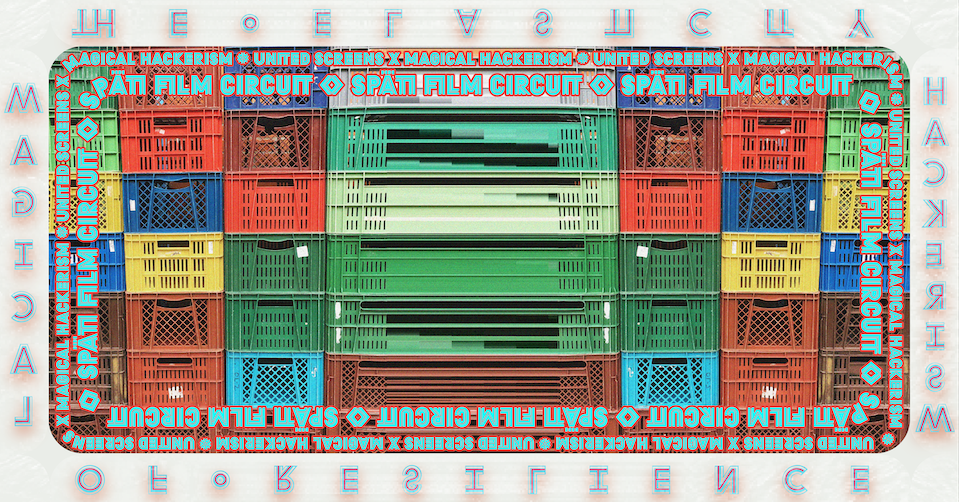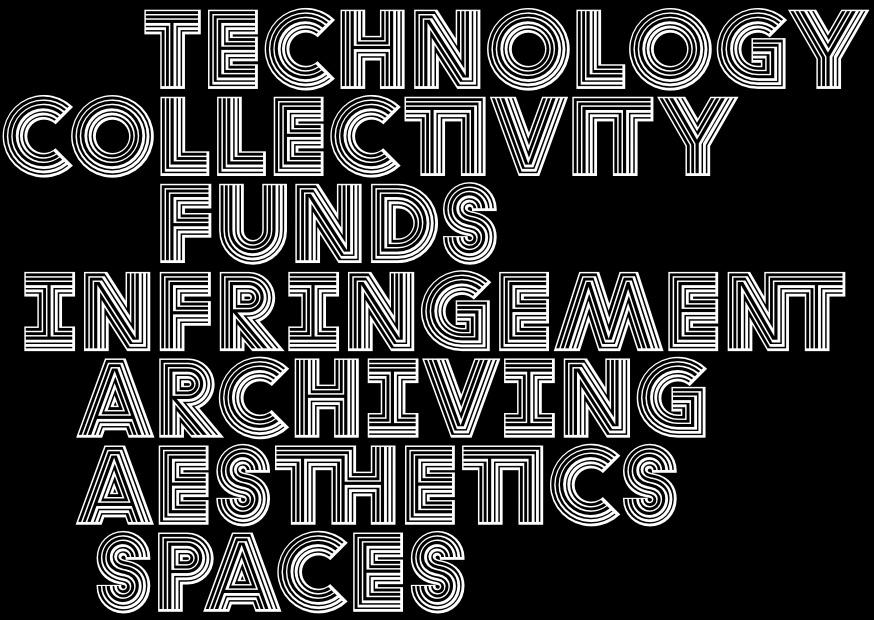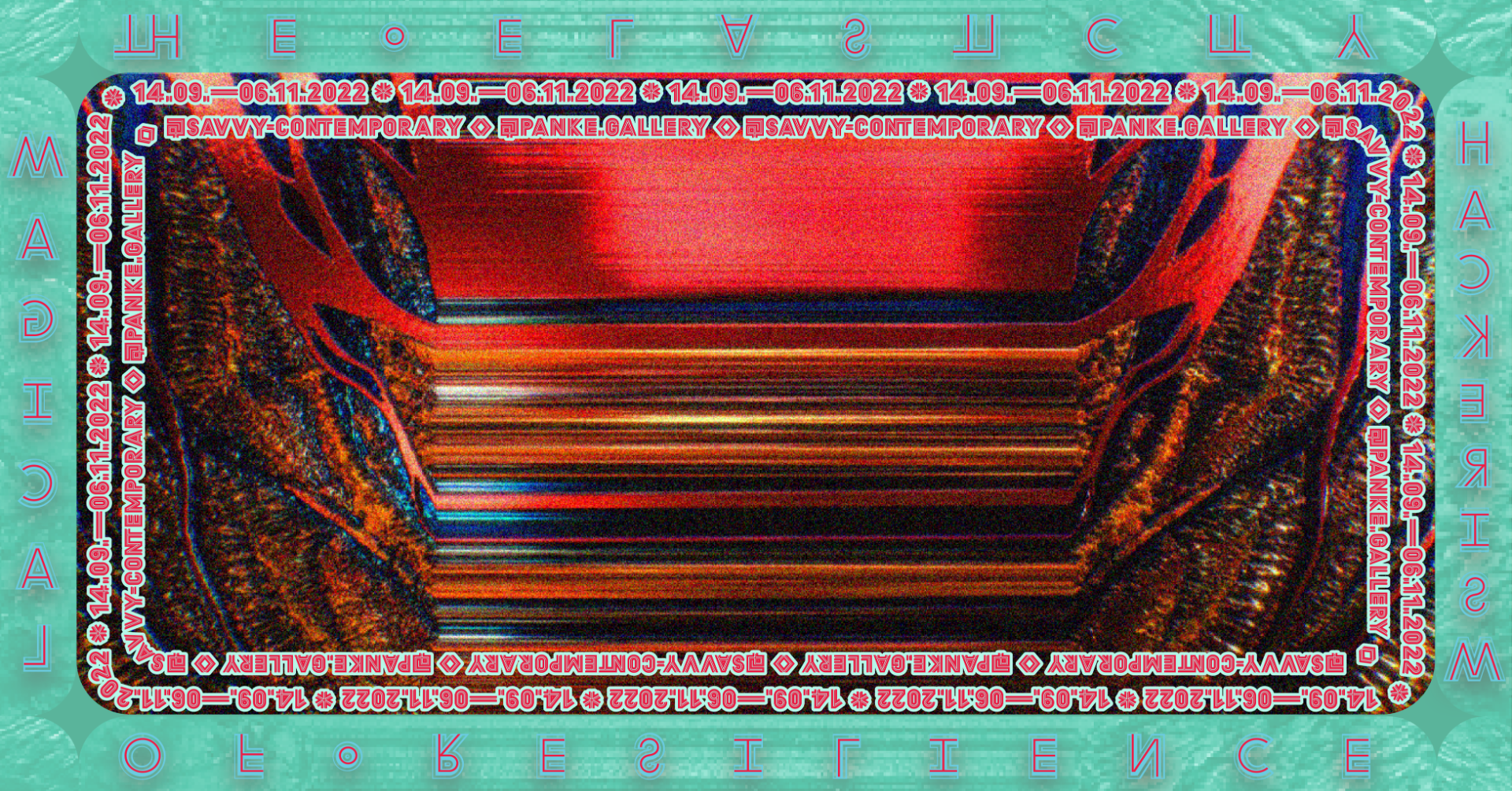Späti Circuit

Film Programme 14.09.–25.09.2022
AT Spätis in Berlin and Tiendas de Barrio in Bogotá
MAP magicalhackerism.savvy-contemporary.com
Films
Black Code Louis Henderson / 21 min / France / 2015
Hyper-Reality Keiichi Matsuda / 6 min / Colombia / 2013
Missing One Player Lei Lei / 4 min / China / 2015
Kgolokwe Seperated Intersections The Botswana Pavilion / 8 min / Botswana / 2021
What Is Social Ecology DIS.ART, Brigitte Baptiste / 1 min / Colombia /
Televishnu Prithi Gowda / 15 min / India / 2010
Noviembre Jenny Toro Salas & Alejandro Salcedo / 9 min / Colombia / 2020
SPÄTIS
In Berlin
:: Spätkauf Torstraße 129 10119 Berlin
:: Afroshop Spätikauf Reinickendorferstr. 18A 13347 Berlin
:: We love späti Danziger Str. 44 10435 Berlin
:: Späti Café & Lounge (next to ) Hasenheide 115 10967
In Bogotá
For Senegalese filmmaker Sembène Ousman cinema was “the evening school of the people” – l’ecole du soir. Moving image as a means of moving thinking for him was the most important means of changing reality. During the same time, the Tropicalia movement in Brazil in the late 1960s, with some of the most notorious filmmakers and musicians of the time, nurtured the idea of “cannibalising” foreign culture, so as not to reject it completely, but eat it up, appropriate and remix it with local culture. Taking films and imaginaries into the quotidian, video clubs, street vendors and to popular spaces was a means of sharing anti-imperialist thinking, storytelling and collectivity. With big cinema screens largely inaccessible and crammed with Hollywood Blockbusters, the hacking of the traditional cinema circuit through creative networks of dissemination has proven utterly resilient, created new film ecosystems (and numerous parallel-”woods”, like Nollywood in Nigeria) that rendered a pluriverse of stories and narratives to a multitude of different screens.
In the framework of the exhibition Magical Hackerism. Or the Elasticity of Resilience and in partnership with the long-term research project United Screens, the Späti Circuit intends to decentralise the circulation and exhibition of film and video art as a means of popular culture. Spätis, a colloquial German expression for kiosks open until late into the night (spät = late) are neighbourhood spaces characterised by a coming together of different social fabrics and creating a sense of community through shared concerns, common languages and familiarity. An evening school for all walks of life and Kiez encounters.
Today, the house in which Gabriel García Márquez, the so-called and possibly mislabelled „father of Magical Realism“, lived in La Ciénaga is a TV repair shop. In this vein of repairing/ remixing imaginaries, Estacion Terrena, a space for arts, research and creation, is located in a commercial district for electronic components and shares its space with a repair shop for electronic devices. From mainboards to coconuts, this space fosters a network of people that have historically built an alternative approach to technology and offer a low cost service for TV screens to function properly.
Over the course of the Berlin Art Week from 14.09.–18.09. several Späti screens across Berlin, Germany, and Bogotá, Colombia, will be activated to screen a variety of short films, from documentaries, hyperreality, essays to animations. The films examine various forms of technologies from a Tropikós perspective (both as region and as mindset), in order to diversify and redistribute the networks of technologies and cultural imaginaries towards pluriversal understandings of the planet. They aim to complexify modern binary divisions and systems of classification, disrupt the vertical sight in our relationship to natural, artificial and hybrid environments.
The Späti Circuit is an initiative by SAVVY Contemporary, Berlin, and Estación Terrena, Bogotá, in the framework of the exhibition Magical Hackerism or The Elasticity of Resilience, in collaboration with United Screens.
Project COLLABORATION & SUPPORT Magical Hackerism is a SAVVY Contemporary project in collaboration with panke.gallery, funded by the Senatsverwaltung für Kultur und Europa des Landes Berlin. The Netting Group is supported by Schloss Solitude’s Digital Solitude Web Residencies Program.


